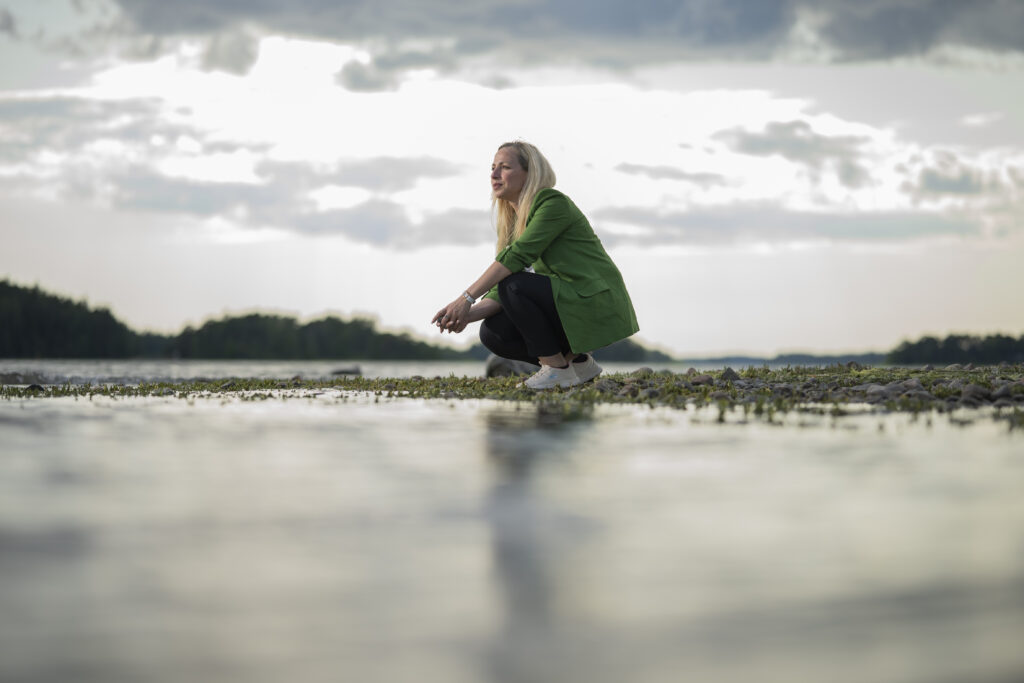
Pioneering Sustainability in Ship Design with Life Cycle Assessment
As maritime regulations tighten and sustainability demands increase, Deltamarin — a global expert in ship design, offshore engineering, and construction support — is helping the industry transition by integrating life cycle assessment (LCA) into the design process. Through a system-wide approach covering energy use, materials, and supplier data, the company delivers knowledge-based solutions for more sustainable and future-ready vessels.
The International Maritime Organization (IMO) has taken a significant step towards establishing legally binding measures to reduce greenhouse gas (GHG) emissions from shipping, aiming for net-zero or near-zero GHG emissions by around 2050. While current regulations focus on reducing GHG emissions in the operational phase, LCA offers a forward-looking perspective. These regulations will come into effect in 2028. Although not yet required for regulatory compliance, LCA is becoming increasingly relevant for different stakeholders aiming to align themselves with long-term decarbonisation goals.
“At Deltamarin, we wanted to be the first design company to offer high-level LCA studies to present a full picture of the vessel’s environmental performance over its entire life cycle to our customers, so we have already been supporting our clients in preparing for the future, stricter requirements,” says Shqipe Buzuku, Deltamarin’s life cycle expert and eco-designer.
“It is a challenging task to integrate LCA into the design process of complex ship systems. Beyond operational emissions, we quantify emissions across all stages of a ship’s life cycle, including upstream activities of steel extraction and production, outfitting, and downstream activities of scrapping and the long-term effect of using energy-saving devices as well as fuel choices,” Buzuku says.
Based on the results of life cycle assessments, shipbuilders can, for example, choose steel sources with a lower environmental impact, while shipowners may select more efficient engines or those adapted to alternative fuels. A battery system is a good example.
“Our goal is to promote sustainable practices in the design of new vessels for operation and shipbuilding, where roughly 95% of new project requests now centre on hybrid and alternative fuel ship design and construction. These requests reflect our clients’ commitment to choosing low-impact alternative fuels and materials to improve the ships’ environmental performance,” Buzuku says.
ENVIRONMENT AND BUSINESS HAND IN HAND
Life cycle assessment is a key methodology for evaluating the carbon footprint and environmental impacts of a product or service throughout its entire life cycle. It enables decision-makers to make informed, sustainable choices, which are often also better for business.
“A sustainable alternative can also be economically viable. For example, when the use of innovative and green energy technology reduces GHG emissions, this may lead to lower current and future environmental charges,” Buzuku points out.
Since 2022, Shqipe Buzuku has served as life cycle sustainability specialist at Deltamarin, where she plays a key role in advancing the company’s sustainability strategy.
Buzuku emphasizes that climate change is one of the greatest challenges of our time. Achieving the IMO’s 2050 net-zero target will require radical innovations in energy efficiency, material sourcing, and transforming industries like maritime transport towards more sustainable future models.
“I am very happy that we have developed a complete in-house capability to evaluate sustainability impacts in ship design,” says Buzuku.

UNDERSTANDING THE FULL IMPACT OF SHIP ENERGY USE
Deltamarin is now applying LCA to all types of vessels. One of the most significant contributors to environmental impact is the energy used by ships.
In line with IMO’s latest requirements, emissions from conventional fuels, such as carbon dioxide, methane, dinitrogen oxide, sulphur dioxides, particles and black carbon, are assessed throughout the vessel’s life cycle. This means evaluating impacts fromextraction and processing to transportation, storage, and use. The same comprehensive approach applies to alternative fuels such as methanol, ammonia, biofuels, and LNG.
“Deltamarin has calculated onboard fuel emissions for over a decade, but capturing upstream and downstream effects demands a deeper, system-wide approach,” Buzuku explains.
SCOPE 3 MATTERS IN A CONNECTED INDUSTRY
So far, the shipbuilding industry has primarily focused on reducing the environmental impact of fuel use. Attention is now expanding to other variables, including building materials and components such as power sources and engines that can be modernised.
“By utilising innovative technologies in ship structures and components, better environmental alternatives can be chosen,” Buzuku says, referring to ongoing projects.
The importance of Scope 3 calculations is particularly evident in the highly networked nature of shipbuilding. For example, battery integration is often requested in today’s ship design projects. Although Deltamarin does not manufacture them, supplier data on raw material sourcing and end-of-life treatment is essential. How a battery is recycled at the end of its life can significantly affect the vessel’s total environmental footprint.
A good example of broad industry cooperation is the EU-funded CHEK project, completed in 2024:
“The CHEK project aimed to decarbonise deep sea shipping. Since maritime transport is an international industry, Deltamarin is involved in multiple joint-industry projects,” says Mia Elg, R&D Manager at Deltamarin.
In the CHEK project, Deltamarin worked closely with the World Maritime University, which conducted a systemic LCA for concept designs of a bulk carrier and a cruise vessel.

FLEXIBLE AND VERSATILE SIMAPRO FOR PROFESSIONALS
The SimaPro software enables detailed environmental assessments using flexible scenario modelling, extensive databases, and a user- friendly interface.
“For example, the effects of fuel and material choices — such as for hull steel — can be assessed separately for production, usage, and downstream activities, with parameters adjusted without restarting the entire assessment. This allows us to continuously update our models as new data becomes available,” Buzuku explains.
Buzuku points out that LCA experts provide accurate information for transparency and support decision-making in advancing a company’s sustainability objectives. They master best practices, methods, and industry standards. Performing LCA for both ships and fuels demonstrates leadership and responsibility in advancing sustainable development.
“The expert plays a central role in evaluating GHG emission data and drawing conclusions,” she adds.
“This work is meaningful, as I get to influence the environmentally responsible choices our clients make. I always vote for the ‘Go green’ option myself. So, every product that is sustainable and aligns with sustainable development is my favourite,” Shqipe Buzuku concludes.

INFO:
30 years’ experience in ship design, offshore engineering and construction services for marine and offshore industries worldwide.